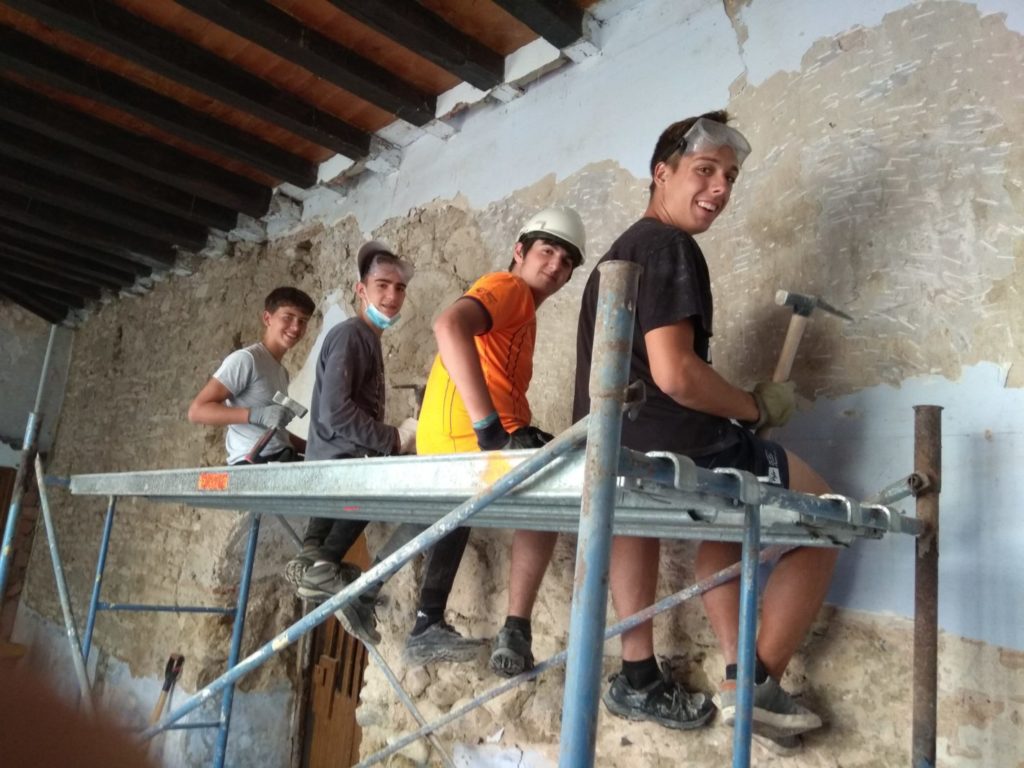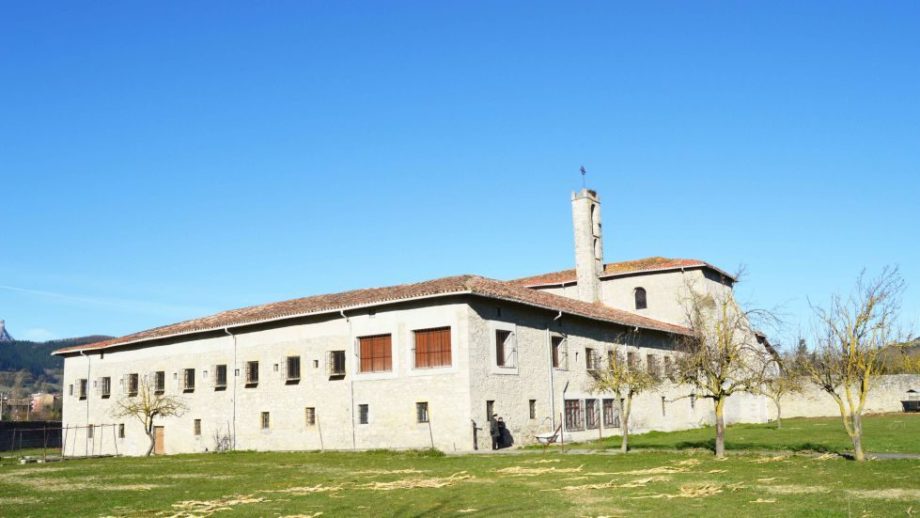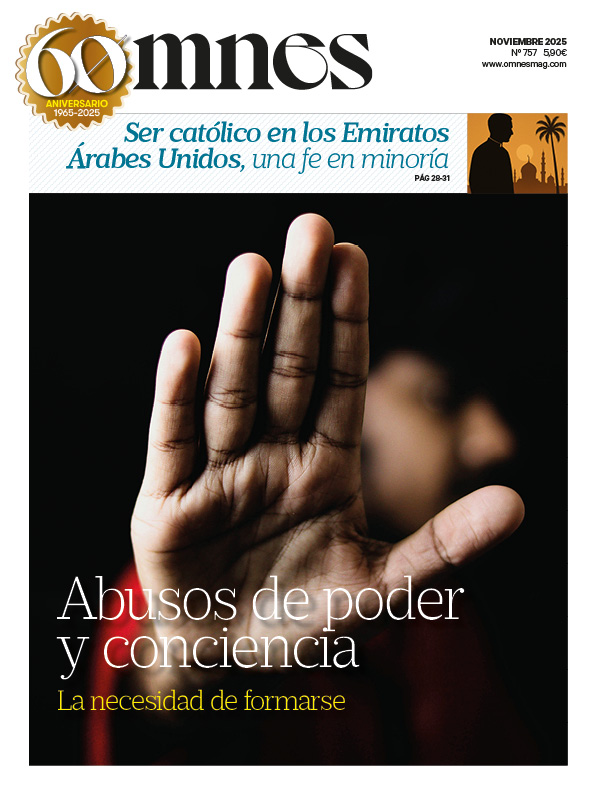The monastery of Santa Clara in the Biscayan town of Orduña had been closed for twenty years since the previous community of sisters had to leave it due to lack of vocations. The history of this 15th century building seemed doomed, like so many others, to ruin or to become a national parador. But neither ruin nor the hotel business would be the final destiny of this centenary place. A new community of Poor Clare sisters once again felt the Lord's call and set out on the adventure of filling this emblematic place with spiritual life.
The word adventure pretty well describes the action these few sisters embarked on. Something that, in any case, was not new to them. A few years earlier they had already refloated the monastery of Belorado, in Burgos, and now they felt the call of the Church and of the Lord to embark on this new mission. A community of five or six sisters could go to the Basque lands and start up the old monastery of St. Clare. These poor sisters heard again the ancient cry of the Christ of San Damiano to Francis, 'rebuild my Church, which threatens ruins'. Literally.
With the help of young people
The work was becoming enormous. To start up a monastery of great dimensions, abandoned for twenty years, was something that was beyond these women. But it was precisely the need that set in motion the engine of solidarity, and two hundred and fifty young people came to Orduña this summer to lend a hand to these sisters. They have come from a wide variety of backgrounds. They have been working there from Religion students from public high schools with their teachers, to a parish in the Madrid neighborhood of Villaverde, the Archbishop's College of Madrid, seminarians, or members of various ecclesial movements such as the John Paul II Group or the Militia of St. Mary. All with a common denominator, a great desire to help and little experience in manual labor. Because it goes without saying that these boys and girls of the digital era had never picked up a hoe with their hands (a what?), a pickaxe, a shovel or even a broom.
But this has been the first great learning experience for these young people. The value of manual labor. Getting tired, sweating, enduring the heat of the sun, getting calluses on your hands... it has been a new experience that can teach them a lot for life. Perhaps there is no better way to cultivate resilience, as they say today, than to spend hours in the sun removing nettles with a hoe. Especially if you do it in shorts.

The Franciscan ideal
Another great lesson received by these young people was to be able to share life with the sisters, to know first hand contemplatives who dedicate their whole lives to pray, to talk with God. The questions that arose for the young people could be asked directly to the sisters, and thus share with them their concerns. Because these young people came to the monastery with a desire to help, but also with many wounds and questions in their hearts. And they needed to open up to someone who could listen to them. The Franciscan ideal, the life experience of St. Clare, was incarnated in these women and became wisdom for the young people of today. Poverty and austerity, the desire for fraternity, care for nature, the call to mission, rebuilding one's own life and the whole of society... these were not stories of the past but urgent demands of our hearts, the needs of today's world.
With one of the groups was a Catholic film director, Francisco Campos, director of films such as "El Rocío es compartir", "El colibrí" and "Jesucristo vive". At one point I wondered if it is easy to find many young people willing to live like this: get up early, sleep on the floor, work hard, go to bed early to be able to perform the next day .... and on top of that pay for it! When he told me this, I could not help but remember two young people from a high school in Móstoles who told me that it was the best plan they had ever been offered.
Perhaps the venerable Jesuit Tomás Morales was right when he said that "if you ask little of a young person, he gives nothing; if you ask a lot of him, he gives everything". In reality, I think that many more young people would respond to a call like this, to give their time for others, if there were adults, educators, who dared to make them the proposal. And who would be willing to live with them, working side by side, these days. Because no one can propose something if one is not willing to live it oneself. It would simply not be credible.
Fresh air
The final result has been greater than we initially expected. A lot of progress has been made in cleaning up the walls and removing weeds... although there is still much to be done, of course. But, above all, these young people have been able to relive the spirit of St. Francis of Assisi. And as if it were a sign, a fresh air was breathed these days in Orduña. These young people have managed to bring life and hope to all of us who have passed through the monastery of St. Clare. Looking at them we could not help but remember Francis at San Damiano rebuilding a small hermitage materially, but beginning to rebuild the Church of Christ by returning to the roots of the Gospel lived without glosses.
In the midst of a worldwide pandemic, in a world that is looking for a new beginning, that needs to be rebuilt in its relationships, from its own foundations, these young people show us the path we can take. To allow ourselves to be challenged by Christ himself and by the needs of our brothers and sisters, to seek God's friends with whom we can share our lives, to get down to work without making big speeches, simply.
And for educators, the great call to continue believing in young people, because in the heart of today's young people there continues to beat a call to heroism, to generosity, to selfless dedication. Yes, this is the great challenge for educators. To believe in young people, as God believed in Francis when he was still a boy, as God has believed in these two hundred and fifty young people who have come to Orduña this summer.








